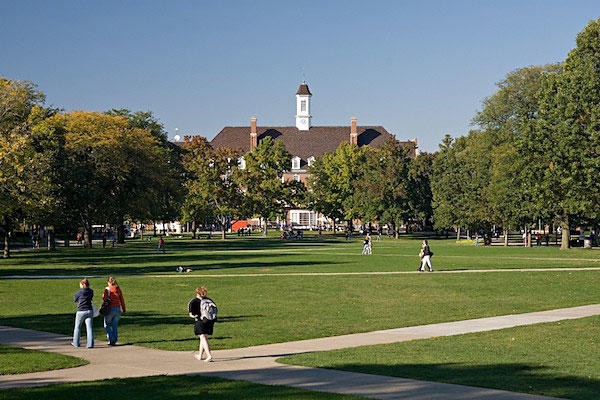As a veteran, you may have different needs than traditional students. Fortunately, many colleges have great programs to assist vets and help them succeed. Here are some things to consider as you conduct your search.
Finding Colleges with Services for Vets
See if the colleges you're interested in have support systems for student-veterans and policies that benefit vets. Visit their websites to see if they offer services like these:
- An office for veteran affairs
- A veterans counselor
- A policy to award credit for military training and qualifying scores on CLEP exams
- A policy that allows you to pay your bills after VA benefits are paid
- An orientation program or class for vets
- Peer counseling with other student vets
- A student club for vets
- A lounge or another area for vets to meet
You can find colleges that have veterans counselors by using the Support Services filter on College Search. And check the GI Bill website to see a list of colleges are approved for GI Bill benefits.
Think About Special Requirements
If you have other requirements, find out if the colleges you're interested in are able to fulfill them. For example, you may want to make sure that a college offers:
- Services for students with disabilities
- Family housing or other family services, such as day care
- Medical support, including mental health counseling
- The option for a flexible class schedule with night and weekend courses for students with day jobs
Starting Out at a Two-Year College
Many veterans start their education at a two-year college and then transfer to a four-year college. If you're considering this path, here are some tips:
- Find out if the two-year college has a special transfer relationship — often called an articulation agreement — with any four-year colleges.
- If you plan to transfer to a particular four-year college, make sure that college will accept the credits you earn at the two-year school.
- Find out what grades you must earn in your classes to get credit at the four-year colleges you're interested in.
- Find out the minimum GPA you must maintain to be accepted at those four-year colleges.
Narrow Down Your Choices
Once you've found some colleges that seem like a good fit, getting firsthand info will help you narrow down your choices. Do the following:
- Visit college campuses if you can to get a feel for a school and to speak with a veteran affairs counselor, admission counselor or academic advisor.
- If you can't visit in person, set up a time for a phone call or a video chat with a counselor or advisor to talk about your fit with the college.
- Ask a college official if you can speak with or email a current vet at the college.
Get the Facts About For-Profit Colleges
For-profit colleges — colleges owned by private organizations with a goal to make money — often try to attract veterans. But these colleges tend to be more expensive than public colleges, so attending one might mean graduating with more debt. In addition, the courses from for-profit colleges often do not transfer to other colleges.
You can see whether a college is for-profit by looking at its College Search profile. If you're interested in a for-profit school, get answers to questions like these:
- What is the average amount of debt a student owes at graduation?
- What percentage of students who start at the college actually graduate?
- On average, how long does it take a student to graduate from the college?
- How many graduates from the college find jobs in their field of study?
Another thing to be aware of is the college's accreditation. For-profit colleges often have national, rather than regional, accreditation. While both types of accreditation are valid, credits and degrees earned at regionally accredited colleges are more readily accepted for transfer than those earned at colleges with national accreditation only.
You can see what kind of accreditation a college has by looking at its College Search profile.





